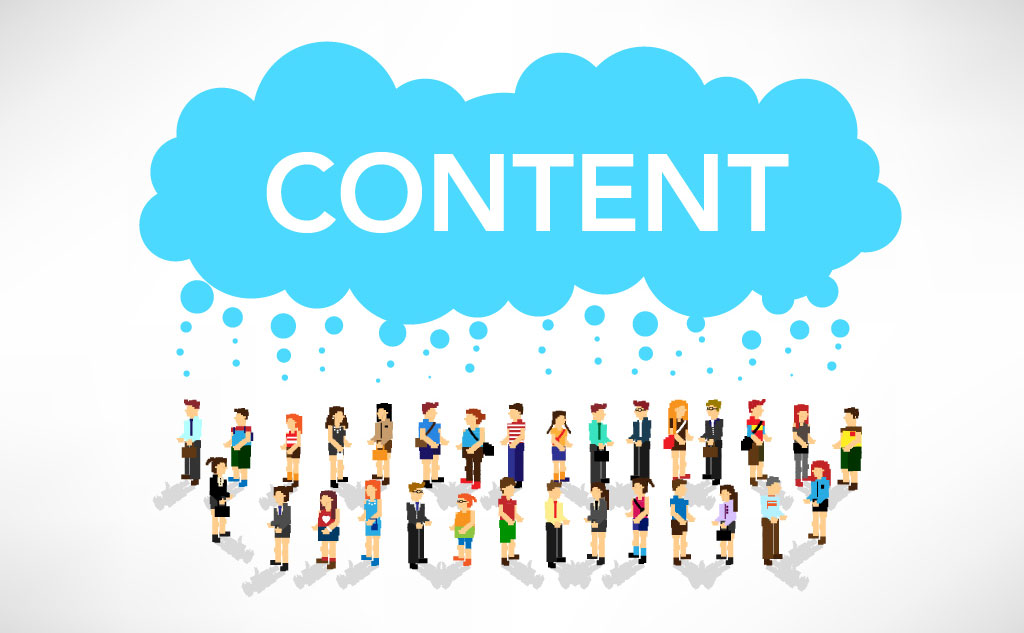In the modern days of the web, there are too many information for any single being to consume.
With tons to show for the many queries people have, search engines need to be more relevant. They need to include many other 'signals', making search engine optimization (SEO) for websites more and more complex.
In other words, trends and the strategies to compete made SEO overcomplicated.
For example. SEO strategies can include optimizing the length of the title, the length of the page, the number of targeted keywords, targeting certain verticals and so forth.
While there is nothing wrong with over-experimenting and over-optimization, webmasters and web owners should know that the basics of SEO is practically and actually very simple.
The basics of SEO only include content and links.
Google even once said that content and links are two of the three (the other being RankBrain) most important ranking factors in its search engine algorithm.
Great Content To Bring Great Value

One of the first two basics of SEO, is content.
Publishers need to always create the most impactful content. To support this attempt, they need to first create the strategies that are actionable, to lure people in. The point is, everything in SEO begins and ends with content. Whether it’s a blog post, infographic, video, in-depth guide, interactive tool, or something else.
People on the web are looking for content.
Content attracts and engages visitors, so building positive associations with the publishers' brand should inspire visitors to take actions. Content also helps search engines better understand what the website is all about, and how they should rank the pages within their search results.
This is why content truly rules everything around the web.
And this is also why SEO should begin and end with content. Everything in content strategy begins and ends with keyword research.
Keyword Research
Proper keyword research is the difference between a targeted content strategy to drive organic visibility, and simply creating content just for sake of it.
The concept of keyword research is straightforward: find the key terms and phrases that the audience uses to find information related to the publishers' intention.
Publishers should know that there are several things they should do and shouldn't do when building backlinks. But in the end, executing content strategies and repeating the process over and over again using relevant keywords is how websites can scale their keyword-focused content to bring even more organic visitors.
It should be noted that search engines won’t simply rank a page highly for simply existing. If a website wants to rank high, publishers need to create pages that provide value.
Further reading: The Reasons Your Great Contents Didn't Get The Quality Backlinks They Deserve
Links For Credibility And Trust

The second of the two basics of SEO, is links.
A website may have the best of content and information. But this doesn’t mean that they should ignore links and backlinks.
The reason is clear: the web is a connected networks of networks. Each network is connected through links. People and search engines, as well as bots of any kind, scout the web by jumping from one link to another.
This is why links matters much more than what they seem.
Creating links within a website the publisher controls is easy. This matters, but doesn't translate to a great SEO campaign. The best of links, are those that are earned.
These links are called 'backlinks', and they can take effort and a lot of time to get. For example, publishers may require to manually contact website owners to earn real links. They may share their post on social media networks, in the hopes to get more to link it.
The good news is that publishers can greatly improve their chances for success with link acquisition, if they can identify the trends as use them as cues to create new pages, or recycle existing pages on their website for link-worthiness.
The best way to earn these backlinks, is tied to the content the publishers create.
Link-Worthiness
So how can a page earn the backlinks it deserves? Here are some general characteristics that should be followed:
- Usefulness: Concept explanation, step-by-step guide, collection of resources and advice, etc.
- Uniqueness: Unique and debatable topics, original research or data, newsworthy events, etc.
- Entertaining: Games, quizzes, memes, viral information, humors, unique approach or opinion regarding certain topics, etc.
Along with these characteristics, publishers should also consider the size of their potential audience. The further they are down in the marketing funnel, the smaller the linking audience size. This can make converting pages more difficult because they only serve a small audience.
Instead, focus on assets that exist at the top of the marketing funnel, to then serve large audiences looking for information. The keywords associated with these pages are typically hard to rank for. But if the content is unique and original, publishers can still earn backlinks through targeted, manual outreach.
Ironically, most linkable pages aren’t always the pages that will rank well for search engines. This is because the larger the audience the more competition that happens. However, using linkable assets, publishers should be able to secure worthwhile links, sufficient to grow the authority and credibility of their brand and domain.
Using memes is one of the best way for publishers to earn a larger audience. Like previously said, memes are entertaining. By putting a bit of humor into a serious context, can make a content more link-worthy.
Simplicity For A Clear Message

There are hundreds of millions of websites online at any given moment, but not many can thrive within their industry, and capable of enjoying their status as an authoritative website within their niche and vertical.
Before a website can get up there, publishers should ask themselves; "What do they have that I don't?"
All websites start small. Before even the most visited sites became successful, there was at least one time that a single person was behind a computer typing something.
To compete the already-harsh and brutal World Wide Web, publishers should start easy, and make use of whatever they have in their disposal. And simplicity here, creates the working environment that is more manageable.
While it is true that technical and on-page elements of modern days of SEO play a big role in a successful SEO campaign. But the more complex things become, publishers can get these elements wrong, and derail their attempt to create a successful content marketing.
So rather than over-complicate things, publishers should start with simplicity and focus on what really matters. And on top of their list, should be: creating the best content, and earn the backlinks those content deserve.
The two basics of SEO should ensure that publishers can spend more time doing the work that will be most impactful, creating a better and more connected web, and elevating SEO as a practice within the marketing realm.
Further reading: The Three Modern Pillars Of SEO
